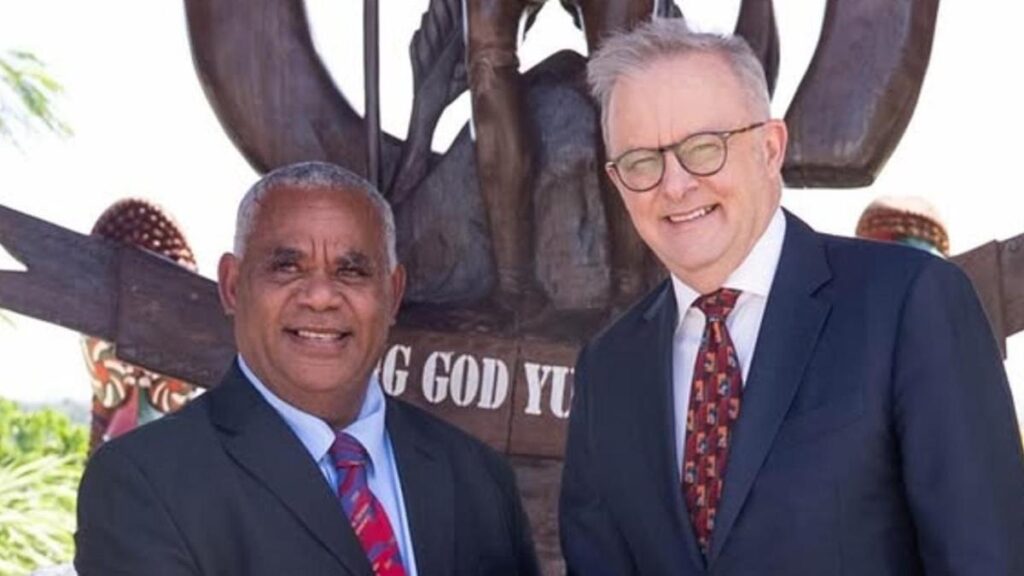
Australian Prime Minister Anthony Albanese faced a setback during his recent diplomatic mission to Vanuatu, where he aimed to sign a significant agreement to counter China’s growing influence in the Pacific region. The initiative, intended to bolster Australia’s presence and partnerships with Pacific island nations, did not materialize as planned, raising questions about the effectiveness of the Australian government’s foreign policy strategy.
The mission, which took place in September 2023, was meant to address concerns over China’s expanding reach in the Pacific, particularly in Vanuatu, a nation that has seen an increase in Chinese investment and infrastructure projects. Albanese’s goal was to solidify bilateral ties and reassure Vanuatu of Australia’s commitment to regional security and development.
Despite preparations, discussions between the Australian and Vanuatu governments did not lead to a formal agreement. The failure to sign the anticipated deal has drawn criticism from various quarters, including opposition parties and analysts who argue that this missed opportunity signals a lack of strategic foresight in Australian diplomacy.
Diplomatic Complications and Regional Dynamics
The complexities of regional politics played a crucial role in the outcome of Albanese’s visit. Vanuatu’s leadership has been navigating a delicate balance between maintaining strong relations with Australia and engaging with China. The Pacific Islands Forum, a key regional body, has been a platform for nations to assert their sovereignty while managing external influences.
In recent years, China has significantly increased its presence in the Pacific, investing heavily in infrastructure and development projects. This has prompted Australia to re-evaluate its approach to regional engagement. The failure to secure a deal in Vanuatu highlights the challenges Australia faces in countering China’s influence effectively.
Local reactions indicate that Vanuatu’s government remains cautious about aligning too closely with any one nation. According to Vanuatu’s Foreign Minister, the country is committed to fostering relationships with multiple partners, thereby ensuring its autonomy in international affairs. “We seek cooperation that respects our sovereignty and development needs,” the Minister stated, emphasizing Vanuatu’s desire for balanced international relationships.
Future Implications for Australian Foreign Policy
The unsuccessful mission raises important questions about the direction of Australia’s foreign policy in the Pacific. Albanese’s government has previously outlined plans to enhance diplomatic engagement and development assistance to counteract China’s influence. However, this incident suggests that there may be gaps in the execution of these strategies.
Moving forward, it will be essential for the Australian government to reassess its diplomatic approach and consider more effective means of engagement with Pacific island nations. Analysts suggest that building stronger, more personal relationships with leaders in the region, as well as demonstrating tangible benefits from partnerships, could improve Australia’s standing in future negotiations.
The implications of this diplomatic setback could resonate beyond Vanuatu, affecting Australia’s relationships with other Pacific nations that are similarly positioned between regional powers. As the geopolitical landscape continues to evolve, the Australian government must navigate these complexities with agility and foresight to maintain its influence in the Pacific.
Albanese’s administration now faces the challenge of demonstrating a renewed commitment to the region, particularly as other nations, including China, remain active players. The outcome of this mission serves as a reminder of the intricacies involved in international diplomacy and the importance of strategic engagement in a rapidly changing global environment.





